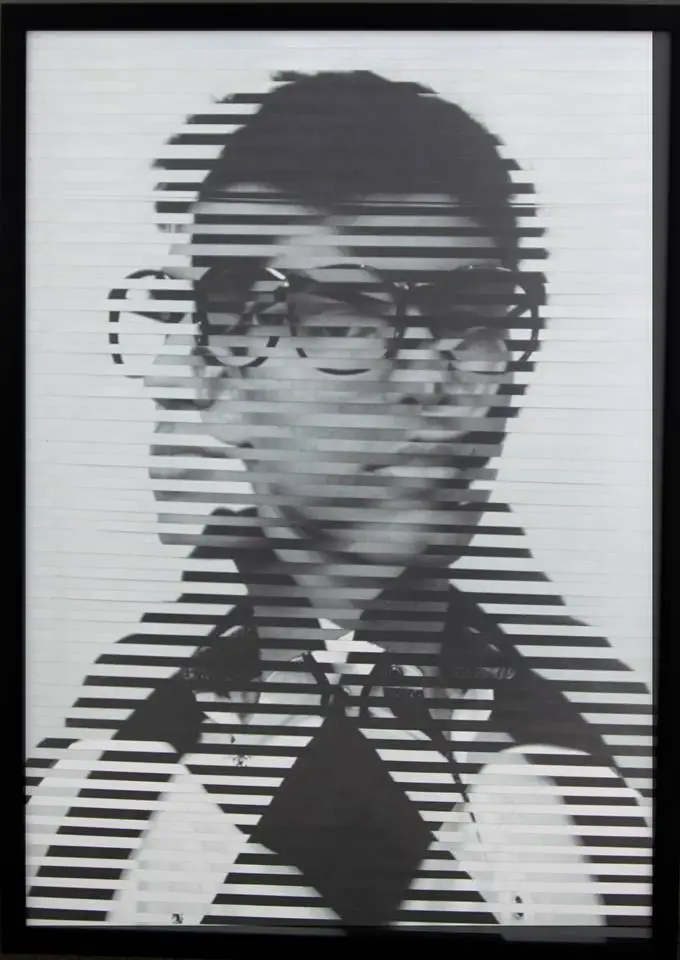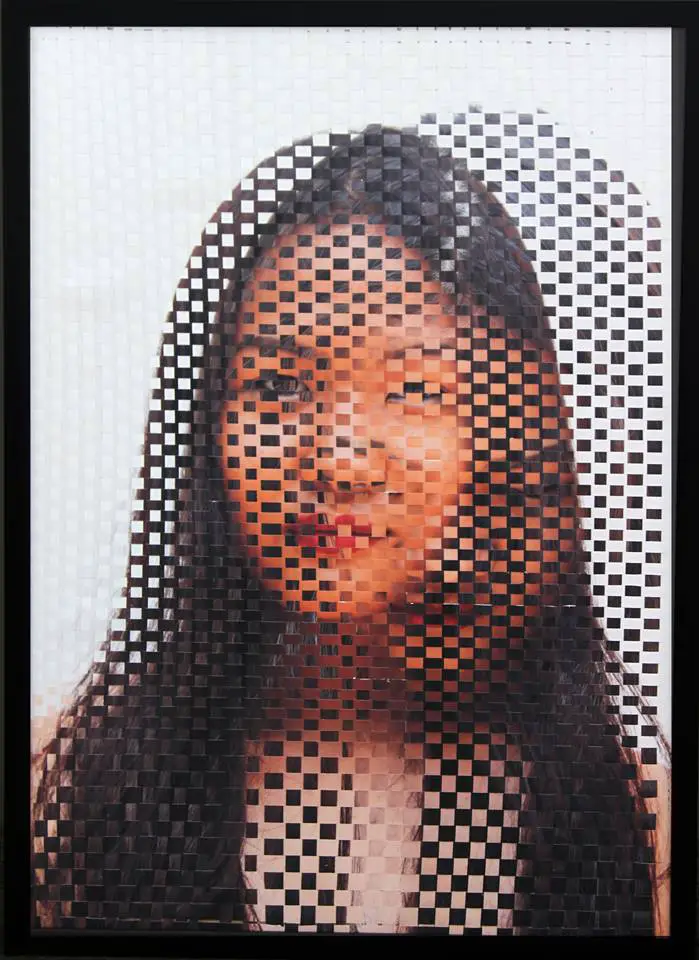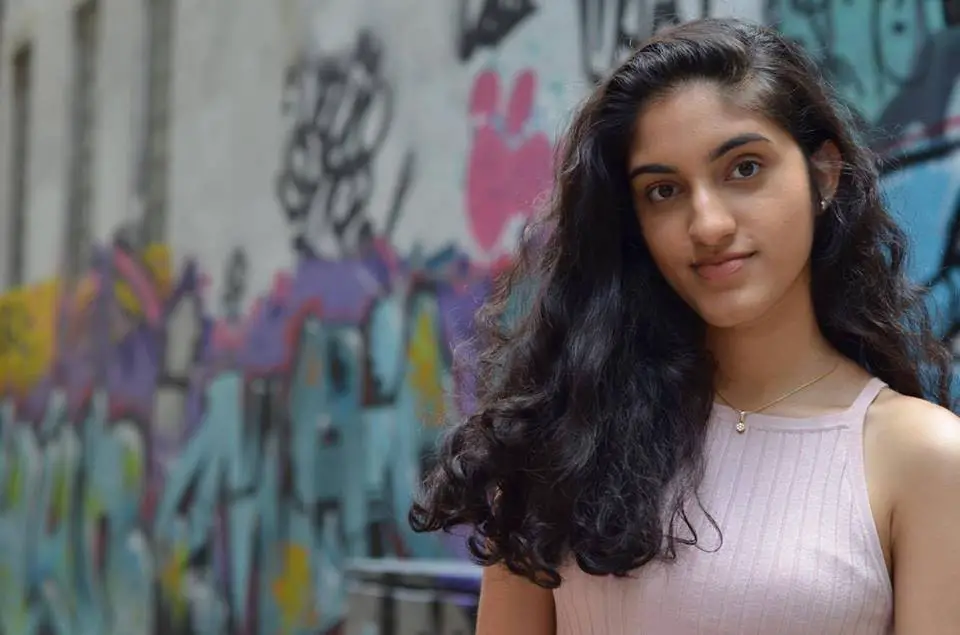Saloni Kothari has been an artist since she was 4 years old, and even though she isn’t an art major at UCLA, she still produces impressive works that make a statement, whether about being weird or college stress.
An international student from Thailand attending school in Los Angeles, Kothari had her painting, “Drowning,” featured in the university’s art exhibition, “Breaking the Taboo: The Unspoken Epidemic.”
Through her art, she explores the pressure on people with mental problems and hopes to help destigmatize mental illness. “No matter how big or how small, mental illness should always be addressed,” says Kothari.
In addition to her painting, Kothari is also the published author of a fantasy novelette, “The Practical Princess: An Empowering Tale for Young Readers,” which features a princess facing off against an albino griffin.

Many of Kothari’s paintings look surreal, often featuring juxtaposing images that force the viewer to reconsider their initial assumptions about the piece. Indeed, her favorite painting was one of the first ones that she felt really pushed her beyond realism.
“It was a white pencil drawing on black paper,” says Kothari. “I was an astronaut and in my glass helmet, there were goldfish swimming around. The idea behind it was to be outside of the norm and be a little weird. At the time, I was studying physics and I was very into astronomy. I think the weirdness is very me.”
Whatever medium she uses, Kothari says she does art for a number of reasons, but it also functions as a sort of meditative exercise. “I do it to create something that isn’t real, depict something in the way you see it, really reflect on how you feel about something,” she says.

She values this reflective time, as it helps her work through her stress, a problem that’s prevalent for almost all college students, especially those who are “aggressively undeclared” like her. She hesitates to declare a major and then risk having to ignore some of her interests, but she also understands the reality of the situation.
Regardless of this dilemma, which is one that most university students encounter, Kothari continues to believe in her open future. “What I pick as a major doesn’t mean I will be doing that the rest of my life. I guess the main objective is just to have fun. That’s a realization that I had pretty recently,” she says.

The UCLA artist notes that being an international student has massively enhanced her college experience, although she admits that she is still very unfamiliar with the American system, joking about how she didn’t know about Costco and other aspects of American culture.
Where others might struggle with the difference, she thrives, claiming that she approaches the new culture the same way she tackles her classes. “I don’t have any preexistent thoughts about either of them,” she says.
This open-mindedness and her art illustrate why she is an excellent candidate to take part in social-awareness projects, such as the UCLA exhibition “Breaking the Taboo.” The exhibit focused on mental health in order to inspire conversation about the stigmas, struggles and experiences of the mentally ill.
Although Kothari does not think she has any mental health issues, she does recognize the importance of being present and introspective about what’s going on for you. Art helps her in that process. “I think that periods of confusion, by painting I took the time to think about them, and I came out a lot happier.”
Kothari understands that getting stuck trying to fit in or make others happy isn’t going to help you in the long run. While paintings and other art forms work for her to get that introspective time, she recommends finding some way, whatever that is for you, to take time to think about yourself for just 10 minutes. She also stresses the importance of remembering not to push others away when you need help and holding on to people you can trust.
People often say that you should take time for yourself, but nothing supports the value of this time for self-reflection like seeing Kothari’s art pieces. Her thought process is evident in every brush stroke, as her paintings act like a catalog of the ideas she is working through and the stress she is letting go of.
By painting through these processes, others can witness her catharsis taking place, and they too can learn about the value of the arts, perhaps taking up the brush or the pen to let out their storm inside.
Unfortunately, Kothari revealed that UCLA limits who can join art classes. “I’m not technically supposed to be in the class that I’m in now. Online, no one is allowed to sign up for those classes if they aren’t art majors,” she says. In response, her friends started an art club because the university did not have one, even though the school has been around since 1818.

This barrier to non-major students immersing themselves in art at UCLA keeps them away from fueling their passion. Given her experience with art as a stress-relieving force, it makes sense that Kothari thinks that art classes are so important, especially in college.
“This art class that I’m taking won’t benefit my degree in any way,” she says. “But even though it takes up eight or more hours every week, it’s like allocated time to practice a hobby: just taking time out to do something that you enjoy even if it doesn’t benefit you academically.”
Art is an important part of her college experience, even if she doesn’t plan on devoting her professional life to it. For her, college is more than understanding math and sciences. “The typical college experience, I think it’s more than about academics,” she says. “Living independently is an important part of growing up. I think I’m learning a lot more than just my classes.”
















